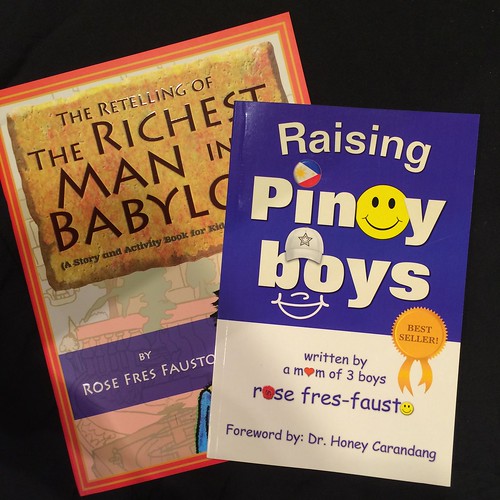It’s the start of another academic year, and as we are preparing our kids’ lunches, we might also be contemplating about how much money to send them off to school with. The issue of children’s allowance has always been a tricky one. Because parents are not likely to talk about money matters with their friends, they address this concern on their own, not knowing if there is a norm.
The issue of allowance is closely tied in to the kind of values we want to teach our children, says Rose Fres Fausto, a former investment banker who is the columnist behind Raising Children With High FQ at PhilStar.com. She says, “I’m a believer that money is best taught in agreement with family values. In fact, some families do not believe in allowance but in ‘pay for jobs done at home.’”
Fres Fausto, who is mom to Martin, Enrique, and Anton, adds, “In our case, we started our sons when they were in Grade 1. By age 6, they could already count money and it helped make some of their Math lessons relevant.”
Explaining the concept of the allowance must also take family values into consideration. She explains, “I was raised by frugal Ilocano parents and my husband and I wanted to pass this on to our children. We wanted to train them early on that for every cash inflow, they should set aside something for themselves (their savings and investments). This is teaching them ‘Pay yourself first’ early on. Teach it in the light of budgeting.”
It would also do well to make the exercise fun for kids. Fres Fausto, for example, gave each of her sons a treasure box and a small notebook where they can keep track of their savings. The task of saving money thus became a game. Not only did it present an exciting challenge for the children, it also taught them that they could take control of their money.
But the question remains: How much allowance should you give your child? There are a number of factors to be considered. Look into what your family can afford, the expenses to be covered by the allowance, and the current prices of relevant goods, among others, says Fres Fausto. If in doubt, it is always better to be on the low side.
For example, you can give your children less than what you think is appropriate, and then together monitor his expenses. You can always increase his allowance if you think that it is enough.
Fres Fausto shares her own experience with kids and allowance: “For my high school son who graduated last March, his last allowance was only P450/week and he took care of his cellphone load; while my college son’s was P600/week, also includes cellphone load. They bring baon to school but they’re free to buy extra food in school. This has been their allowance for the past two or three years. Last year, my college son deliberately didn’t want an increase because he told me that he wanted to force himself to look for a way to earn some sideline while in school.”
By incorporating positive values into the allowance concept, we can teach our kids how to start managing their finances in an effective manner.

Rose Fres Fausto’s works will be available at the mommymundo.com/shop soon
Rose Fres Fausto is the author of Raising Pinoy Kids. Her next project is The Retelling of The Richest Man in Babylon. She says, “It’s a children’s book for kids from 1 to 92. It not only gives the kids the necessary headstart on the basic laws of money but also reminds the parents how simple the laws are.”


Leave a Reply